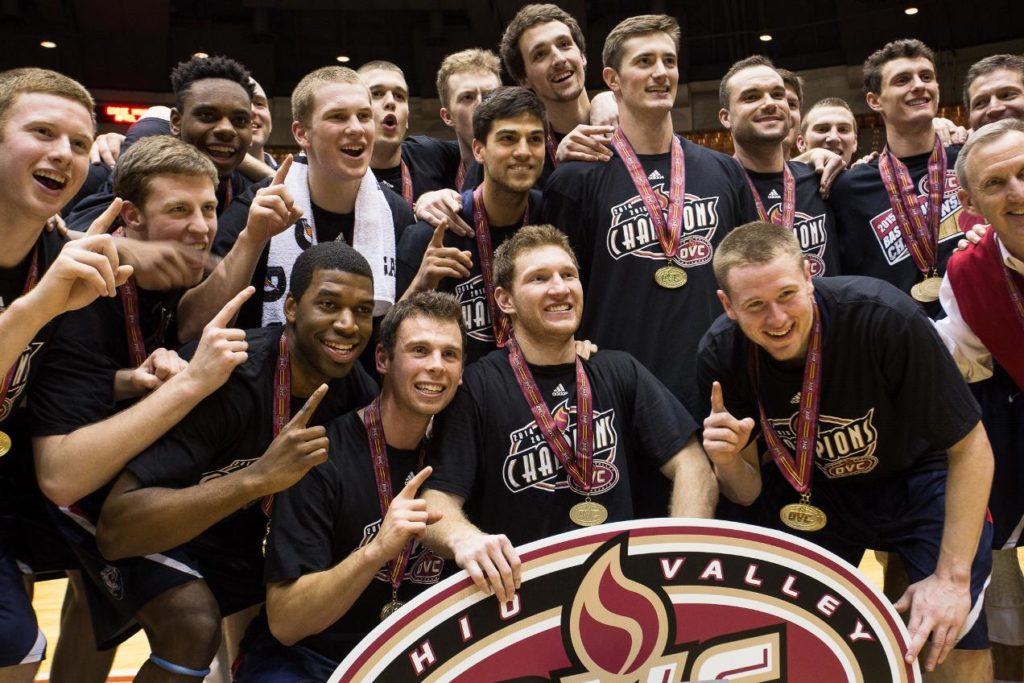
By the numbers, the top team in the NCAA bracket is the 15th-seeded Belmont Bruins, though not in field goals and rebounds. If teams were going head to head based on academic metrics like graduation rates and GPAs, Belmont is the undisputed champion, according to Inside Higher Ed.
Rick Byrd, head coach for 29 years, says the academic success has more to do with recruiting than tutoring. Even when the Bruins made the leap to Division I, he refused to recruit players who would only tolerate the college part of college basketball.
“It’s just too hard to be knocking on doors at 8 a.m. to get them to class,” Byrd says. “We don’t have all Rhodes Scholars on this team. But we have all guys that want to be in college and do the work and didn’t just come here so they could play basketball.”
Belmont might not draw many pro-bound prospects, even if it wanted them. But instead, the school makes the most of guys who know this is likely the end of the line for their basketball career.
Craig Bradshaw is a smiley 6-foot-3 junior from Ridgetop, Tenn. He was crushed when he got his first C freshman year, in — of all things — a class called “the art of paying attention.”
“You had to read a lot, and we were on trips all the time. We went to Alaska for nine days and I didn’t touch a book,” Bradshaw says. “It was easy for me in high school and when I got here, it was a little bit tougher.”
Leader In Academic All-Americans
He bounced back. This year, Bradshaw was named an
Academic All-American, Belmont’s 12
th since 2001 — the most in the NCAA during that period.
The team turns grades into a friendly competition, razzing each other when someone makes an F. Players don’t want to break coach Byrd’s 14-year streak with an average team GPA above a 3.0.
“You don’t want to mess that up,” Bradshaw says. “It’s kind of a pride thing.”
Just one student could ruin a couple of other streaks too, like a 100 percent graduation rate for the last 12 years.
“It really is surprising to see Belmont’s graduation numbers and see all of those 100 percents,” says University of Georgia professor Welch Suggs, who has studied NCAA academic trends. He’s more surprised by Belmont’s streak of no transfers over the same period. Hundreds of students transfer each year to find more playing time on another team.
With
sanctions and Syracuse and
investigations at North Carolina, Suggs says there’s been so much academic fraud in the NCAA that he’s skeptical of any numbers — especially when they’re flawless.
“It is so hard these days to be idealistic about college sports,” he says.
But Suggs finds that Belmont doesn’t even game the system in allowable ways, like clustering players into less challenging degrees. Finance, business and math majors get regular playing time. Holden Mobley graduates in May with a degree in philosophy. Then it’s on to law school.
“I really love to read and write,” Mobley says. “So philosophy was just something that sort of helped me think critically and hopefully helped improve my chances of succeeding as a lawyer.”
Recruiting Smart Helps, Not Hurts, On The Court
Recruiting responsible students has meant making sacrifices, especially on size and speed. Coach Byrd also concedes that his team may have fewer players from underprivileged backgrounds, though he contends that’s true of the broader student body at most private universities.
On the whole, Byrd believes his way has helped, rather than hurt on the court.
“There may be a lot of coaches or fans or people out there who think that I am limiting how good we can be by excluding a bunch of people that maybe we could squeeze in here academically and might be real outstanding players,” Byrd says. “But we end up with guys with character who are unselfish and like each other, and that makes us a better team.”
Byrd’s own record – with more than 700 career wins – helps prove that academics and winning can coexist, at least outside the power conferences. Belmont has become a perennial participant in the tournament, but the team has yet to pull out its first win. They face number-2 seeded Virginia Friday.


